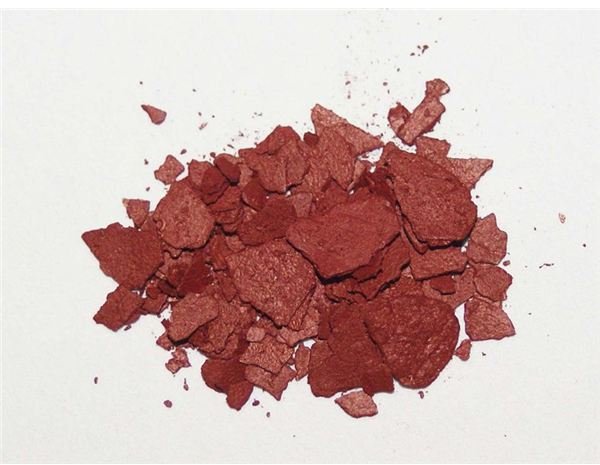Prostate Cancer Prevention with Foods Containing Lycopene
What is Lycopene?

Lycopene belongs to the family of carotenoids that gives various fruits and vegetables their red, orange, and yellow pigmentations. The major source of lycopene for human beings is tomato (Lycopersicon spp.) but it is also obtained in guava, apricots, watermelon, grapefruit, and papaya, among others. Animals don’t have the ability to synthesize lycopene. We humans rely on eating fruits and vegetables to supply our body with this powerful anti-oxidant compound. Lycopene has the highest concentration in blood plasma, but it is also found in significant concentration in the prostate, adrenal, liver, lung, and testes. The anti-oxidant property of lycopene has been correlated to the low incidence of cancer in various populations. Research on lycopene started in the 1980s. Today, there are hundreds of research studies on the anti-oxidant and anti-cancer properties of lycopene.
Lycopene as Anti-Oxidant Phytochemical
Unlike the carotenoid beta-carotene, lycopene is not converted to Vitamin A inside the human body. Scientists claim that lycopene is a more powerful anti-oxidant because it is not converted to Vitamin A. Based on laboratory experiments, the anti-oxidant potency of carotenoids decreases when they are converted to Vitamin A.
Lycopene has the ability to rid off potentially destructive singlet oxygen produced in the normal metabolism of cells. Singlet oxygen is highly reactive and capable of destroying cellular components like the DNA and the cell membrane. If the DNA is destroyed, abnormal cellular activity can happen. A very good example is the uncontrollable division of cells leading to the formation of benign or malignant tumors. Singlet oxygen destroys the cell membrane by reacting on the polyunsaturated fatty acids, the major structural components of the cell membrane. The fluidity and integrity of the cell membrane is destroyed if the fatty acids react with singlet oxygen. Note that the cell membrane serves as the gate keeper of the cell, inhibiting the entrance of disease-causing compounds. Hence, its destruction initiates the formation of various diseases like cancer.
A diet low in lycopene has been associated with an increased concentration of singlet oxygen and other free radicals. Free radicals accumulate as a person ages, especially if he or she does not consume fruits and vegetables that are rich in lycopene. This might be the reason why some types of cancer appear among individuals in their 50s or 60s. One example is prostate cancer, which is observed among men in their 60s.
Lycopene and Prostate Cancer
There are research studies published in scientific journals that investigate the effects of lycopene on various cancer cells in culture or in animal models. Laboratory experiments showed that lycopene slows the growth of tumors in the brain and breast tissues of laboratory animals. Further studies are needed to know whether tumor growth inhibition of lycopene applies in human.
Research funding has been directed on studies investigating the relationship of lycopene and prostate cancer incidence among men. The findings of these studies are inconclusive and contradict each other.
Studies performed in a male population found that consumption of tomatoes and tomato-based products was correlated with a low incidence of prostate cancer in the population. However, a study in 2004 reported that tomatoes have weak protective effects against prostate cancer.
One study reported that lycopene supplements reduce the rapid growth of tumor in a small group of men with prostate cancer. However, another study reported that lycopene supplements do not significantly reduce the growth rate of prostate tumor among men that did not receive hormone therapy. These findings imply that hormone therapy may be responsible in suppressing the growth of tumor and lycopene has no inhibitory effect at all. It may also be possible that lycopene works best in the presence of the hormone.
In 2007, researchers from the National Cancer Institute and Fred Hutchinson Cancer Research Center conducted a study to investigate whether the blood lycopene levels of men that developed prostate cancer differed significantly with the blood lycopene level of men that didn’t developed prostate cancer. The sample size of the study was 28,000 men aged 55-74. The researchers were very frustrated when they learned that there is no significant difference in the blood lycopene levels between healthy men and the men who later on developed prostate cancer.
Prostate cancer is the second leading cause of death among males in the United States. It is not surprising that the researchers showed frustration when they found out that cheap and readily available tomatoes and tomato-products could not effectively protect men from prostate cancer.
References
*American Association for Cancer Research (2007, May 17). No Magic Tomato? Study Breaks Link Between Lycopene And Prostate Cancer Prevention. ScienceDaily. Retrieved March 25, 2009, from https://www.sciencedaily.com/releases/2007/05/070517063011.htm
*Abramson Cancer Center of the University of Pennsylvania. (November 1, 2001) Lycopene. Oncolink. Retrieved March 25, 2009, from https://www.oncolink.org/oncotips/article.cfm?c=2&s=8&ss=16&id=57
*Lycopene. Retrieved March 25, 2009 from https://www.whfoods.com/genpage.php?tname=nutrient&dbid=121
*American Cancer Society (July 12, 2007). Lycopene. Retrieved March 25, 2009 from https://www.cancer.org/docroot/ETO/content/ETO_5_3X_Lycopene.asp
*Biochemistry of Lycopene. Retrieved March 25, 2009 from https://chemistry.about.com/cs/biochemistry/a/aa050401a.htm
Photo Credit
https://en.wikipedia.org/wiki/File:Lycopene3D.png
https://en.wikipedia.org/wiki/File:Lycopene_powder.jpg
